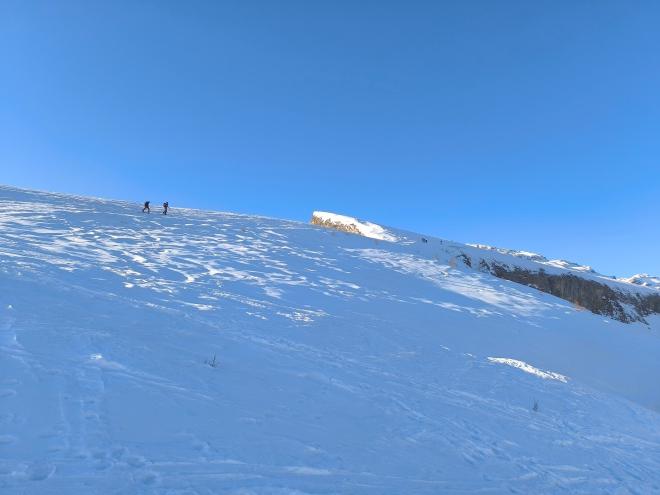Higher Altitudes, Thinner Air: The Uneven Path to Success

I don’t like when winter is over. It’s always a mixed feeling, tinged with melancholy and sadness. At the same time, after a long season, you grow tired of rising early, evaluating weather and avalanche conditions, setting out while it’s still dark, facing capricious weather, and choosing the right path.
I just completed my last tour of the winter season, surprisingly early this year. With spring already blooming in the valleys, I had to venture higher to find good snow conditions. My goal was an almost 3000m high summit. Sunshine, a straightforward route, good conditions, with occasional challenging passages along the way. It doesn’t take long to reach the summit, yet I feel the thinness of the air, forcing me to move more slowly than usual at lower altitudes, careful not to lose my breath.
If you’re at lower altitudes, which is the normal case for many people, you can move faster. But when you climb higher without being acclimatized, the thin air constrains you to slow down, requiring slightly more time to reach your summit dream.
#
#
These unequal conditions mirror what happens in technical jobs like software engineering, where most developers are currently male. Men operate at “lower altitudes,” moving faster. Women, less represented in this field, must demonstrate more, be more outstanding, and work harder to be recognized — or even seen — than men. It’s like breathing thin air that slows down movement, taking more time to reach the goal. This remains common practice, even in highly developed countries with high mountains. Mindsets don’t change quickly.
What about other “unseen” people like those with disabilities? They aren’t thought capable of doing certain tasks. They face tougher conditions to succeed, like climbers at high altitudes. They need more effort and more exhausting work to show they’re at least as good as — not worse than — others. Often, they must be even better.
Average people, familiar only with lower altitudes, can’t see these struggles or what these individuals achieve every single day.
It’s even harder when these circumstances multiply. These climbers are used to fighting, using more energy to succeed. With different perspectives, approaches, and out-of-the-box ideas, they see things differently. They’re the people who make the difference and could bring your business to success.
So why not open your eyes, see these people, respect them, and benefit from their experiences? They give more than the majority.
And if you’re non-privileged, don’t accept less. Make your voice louder — you are equal and deserve a better, easier life. You’ve already proven you can climb high mountains.